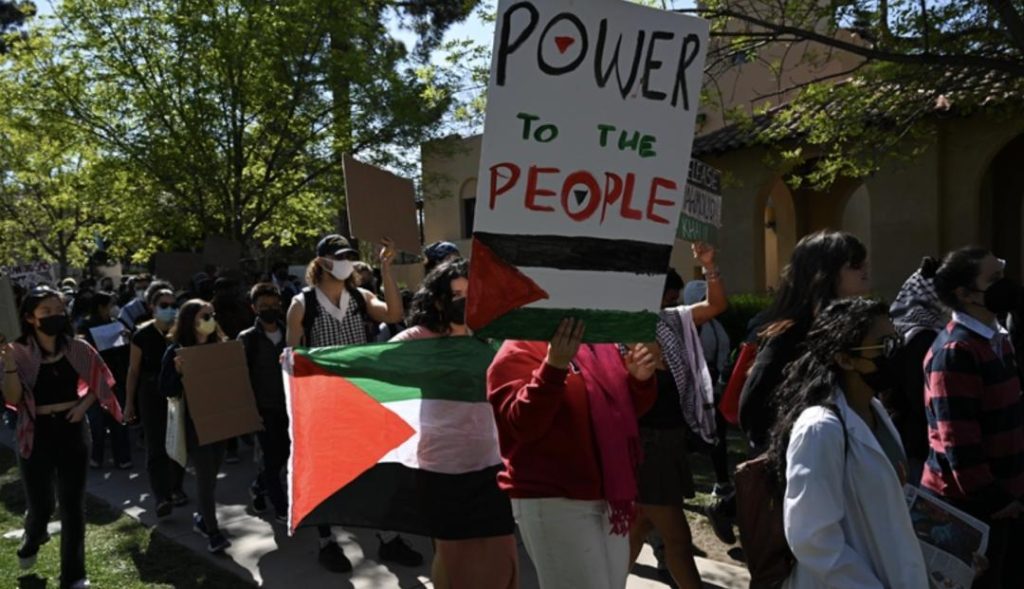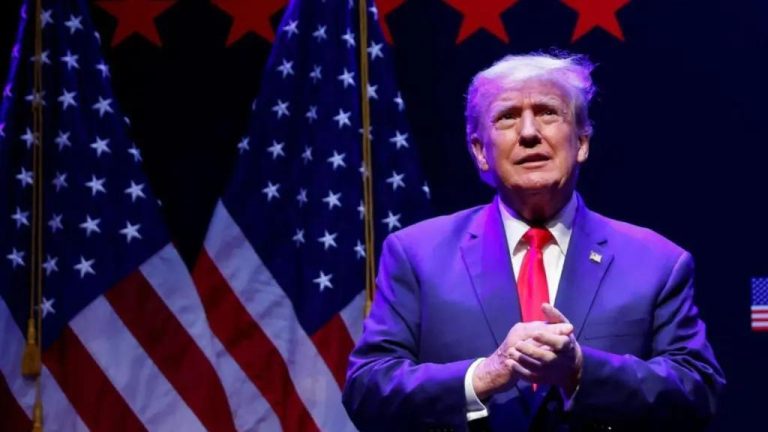
12 Charged with Felony for Pro-Palestine Protest at US’ Stanford
In a move that has sparked widespread controversy, twelve individuals have been charged with felony vandalism for their actions during a pro-Palestinian protest at Stanford University in June last year. The protest, which aimed to demand that the university stop investing in pro-Israel companies, took a violent turn when the protesters barricaded themselves inside the university president’s office and damaged properties.
The incident has raised important questions about the limits of free speech and the role of universities in promoting social justice. While the district attorney has emphasized that “dissent is American, vandalism is criminal,” many have argued that the charges are an attempt to silence a legitimate movement for Palestinian rights.
According to reports, the protest was part of a global movement to support the Boycott, Divestment, and Sanctions (BDS) campaign, a non-violent movement that aims to pressure Israel to end its occupation of Palestinian territories. The protesters, who were mostly students and faculty members at Stanford, had been planning the event for weeks and had secured permits from the university to hold the demonstration.
However, things took a turn for the worse when a group of protesters, estimated to be around 20-30 individuals, broke away from the main group and entered the university president’s office. They barricaded themselves inside and refused to leave, leading to a standoff with university officials and police.
During the standoff, the protesters allegedly damaged university property, including windows and furniture. They also spray-painted graffiti on the walls and caused significant disruption to university operations.
In the aftermath of the incident, the Santa Clara County District Attorney’s Office filed felony vandalism charges against 12 individuals, including several Stanford students and faculty members. The charges carry a maximum sentence of up to three years in prison and a $10,000 fine.
The district attorney’s office has emphasized that the charges are not intended to suppress free speech, but rather to hold individuals accountable for their actions. “Dissent is American, vandalism is criminal,” said the district attorney in a statement. “We understand that people have strong feelings about the Israeli-Palestinian conflict, but we cannot allow vandalism and destruction of property to become a way to express those feelings.”
However, many have criticized the charges as an attempt to silence a legitimate movement for Palestinian rights. The American Civil Liberties Union (ACLU) has come out in support of the protesters, arguing that their actions were protected by the First Amendment.
“The right to protest and express oneself is a fundamental right in this country, and it is not a crime to damage property in the course of a peaceful protest,” said an ACLU spokesperson. “The district attorney’s decision to file felony charges is an attempt to intimidate and silence those who are advocating for Palestinian rights.”
The incident has also sparked a heated debate about the role of universities in promoting social justice. Many argue that universities have a responsibility to support and promote movements for social change, including the BDS campaign.
“Universities are meant to be spaces for critical thinking and social activism, not just for academic research,” said a Stanford professor who was involved in the protest. “By charging these students and faculty members with felony vandalism, the university is sending a message that it values property over people and profits over principles.”
The incident has also highlighted the growing tensions between pro-Palestinian and pro-Israel groups on campus. The Stanford Israel Alliance, a student organization that supports Israel, has condemned the protest and called for the university to take action against the protesters.
“We are appalled by the violence and destruction caused by the protesters,” said a spokesperson for the Stanford Israel Alliance. “The university has a responsibility to protect its students and staff, and to promote a safe and respectful environment for all.”
As the case moves forward, it remains to be seen whether the felony charges will stand. Many are calling for the charges to be dropped, arguing that they are an attempt to silence a legitimate movement for Palestinian rights. The incident has also sparked a wider debate about the role of universities in promoting social justice and the limits of free speech.
Source:


